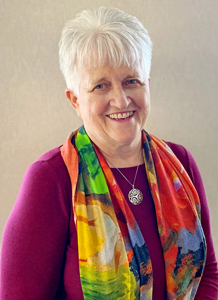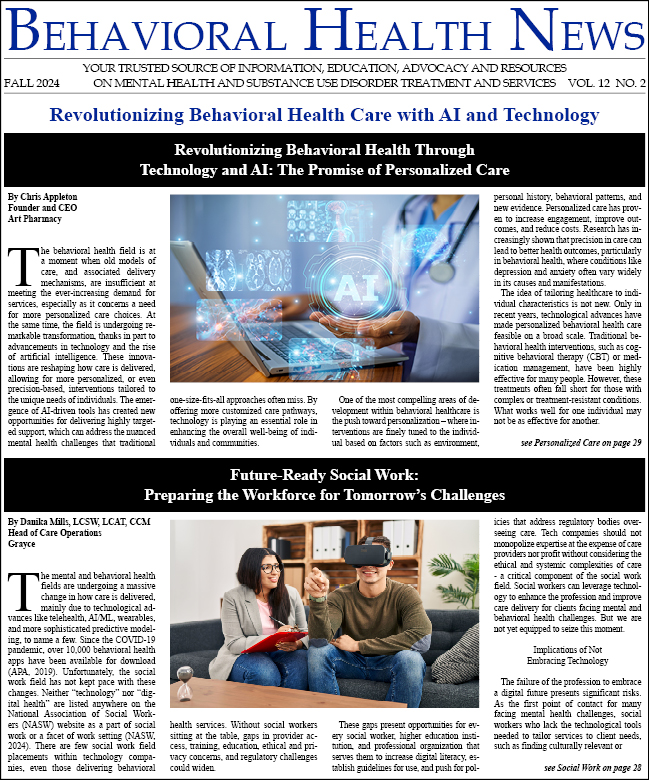Integrated care works with the whole person in the world they are experiencing including their physical and behavioral health, as well as past trauma and other social determinants impacting their lives. Individuals with co-occurring disorders, when treated holistically, develop a trusting relationship with their treatment team, making recovery a reality.

Ann Sullivan, MD
Commissioner
NYS Office of Mental Health
The CDC reported last year that the total number of adults in the United States with both a substance use disorder (SUD) and co-occurrence of any mental health illness was 17 million (about 6.7 percent of the population) and the number of adults with a co-occurrence of an SUD and severe mental illness was about 5.7 million (2.2 percent of the population).
The cause and relationship of co-occurring disorders is unique for each individual. In some instances, chronic substance use can lead to mental illness, and in other cases, a person’s mental illness can lead them to self-medicate and develop a substance use disorder.
But regardless of its origin, addressing co-occurring disorders can be challenging because of the complexity of each individual’s experience. When we do not provide whole person integrated- care, and individuals receive fragmented and difficult to access services, their recovery is impaired. Services that effectively integrate mental health and substance use treatment must be available to all.
Highlights of Integrated Care In New York’s Healthcare System
The New York State Offices of Mental Health (OMH) and Addiction Services and Supports (OASAS) have partnered to establish state of the art integrated care throughout our Crisis System. 988 is a universal call number for mental health or substance use crises that will provide immediate counseling and referral to additional services as needed. 988 can also connect individuals to our Mobile Crisis Teams who will go to where the person is and work together to resolve the crisis. Again, as teams expand, they are being trained to provide comprehensive integrated care.
And throughout the design and training for all services equity and inclusion for all is critical. Collaborating with underserved communities to identify policy and program needs has been a core component of crisis development in New York State. One targeted effort undertaken by OMH was to contract with a national training center to create a recipient-informed training for crisis response workers across the continuum of care that is specific to the needs and risks associated with LGBTQ+ individuals in crisis, with an even more targeted component geared towards LGBTQ+ youth, families, and older adults. In addition, a culture of treatment and practices focused on eliminating racial and ethnic bias, and ensuring inclusivity, is essential. Establishing culturally appropriate services that are available and accessible to all is a State priority.
In our Intensive and Supportive Crisis Stabilization Centers, jointly developed and licensed by OMH and OASAS, staff work with any adult, child, or adolescent experiencing a mental health and/or substance use crisis. The centers provide state of the art integrated evaluation, care, and comprehensive services in a safe and welcoming environment, 24 hours per day, seven days per week.
By providing urgent and immediate treatment, these Crisis Stabilization Centers can enable people to deal with their crisis and prevent the need for higher levels of care and unnecessary emergency room visits. The Centers have extensively integrated peer and recovery-oriented support services, as well as referral and follow-up services to ensure people continue to receive the support they need.
New York is also dramatically expanding our network of Certified Community Behavioral Health Centers, which provide nationally recognized integrated behavioral health care for mental health or substance use, regardless of ability to pay, place of residence, or age. Governor Hochul’s $1 billion plan to overhaul and strengthen the State’s mental health care system includes the tripling of the number of CCBHC’s in New York from 13 to 39, to eventually serve an additional 300,000 New Yorkers.
CCBHCs have been developed across the country because they treat the whole person, each person’s physical health, behavioral health, social and life needs. They are required to provide a comprehensive array of behavioral health services, so individuals don’t have to piece together the support they need across multiple providers. They also provide care coordination to help people navigate behavioral health care, physical health care, social services, and the other systems in which they may be involved. CCBHC’s are expected to provide peer services, counseling, and family support. The availability of peer services is an important element for all programs to ensure that clients have the opportunity to engage with those with lived experience throughout their recovery. Peers teach skills, share their unique understanding of the system, partner with other team members, model recovery, and assist individuals in developing their own recovery plan.
OMH has surveyed clients of CCBHC’s and received many positive reviews, including: “The first time I came to [the CCBHC] I wasn’t ready to accept help for both mental health and substances, I only wanted to talk about my problems with substances… but as I started meeting with my counselor she explained how it would be good for me to learn about both so I started thinking about what I could do for my mental health more….When I went to other programs in the past I didn’t have to talk about my mental health so that was new for me…”
Another client said: “…I was getting treatment for my depression and addiction for the past three years. I was stubborn at first, I didn’t want to do anything but talk about my addiction, but they told me I should think about how my depression was making my life harder and eventually I started talking about that too. I started seeing a therapist and going to group (therapy) here…”
A third client noted that all his service providers are on the same page: “I like that my counselors and my Peer talk and they all seem like they’re working together to help me. I know my therapist is talking to my doctor (psychiatrist) because my doctor showed me how he can see the notes from my therapy and how they’re sending messages to each other through the computer. I love that I can see everyone in one place when I come in for my appointments, this is a ‘one stop shop’ and I really feel like they’re really making my life better.”
Other clients pointed out the CCBHC’s have helped them with numerous tasks beyond their immediate healthcare needs, including arranging transportation, navigating Medicaid paperwork, obtaining housing, and finding employment.
Despite the success of the CCBHCs in providing integrated care there are still certain challenges that must be addressed in the integration of mental health and substance use treatment into all our services which often requires a change in the treatment culture of the individual clinic or service provider. To help address these challenges and cultural changes, OMH provides training and technical assistance to healthcare providers through the Center for Practice Innovations on best practices for implementing integrated care.
Another joint endeavor of OMH, OASAS, and the Department of Health (DOH) is the Opioid Use Disorder Capacity Building Initiative, which engages all specialty mental health clinics in New York State to ensure individuals with psychiatric conditions and co-occurring opioid use disorders (OUD) have access to evidence-based care, including screening for OUD, and access to Naloxone Kits and medication assisted treatment for OUD. This effort has led to significant increases in the number of individuals served in mental health clinics with OUD who are identified and treated for their substance use.
Finally, OMH is also working with OASAS to ensure that the school-based mental health clinics we license include screening and services to identify and address substance use. Such integrated early intervention and prevention strategies are critical to embedding integrated whole person care throughout all we do.
In summary, individuals with co-occurring disorders need holistic integrated care in facing their challenges on the road to recovery.
As OMH implements the initiatives in the Governor’s historic plan to strengthen the State’s mental healthcare system, we are doing so with the understanding that viewing clients holistically and providing quality integrated treatment and supports that are sensitive to all the social determinants impacting their well-being ultimately leads to improved health outcomes for all New Yorkers living with mental illness and substance use disorder.
Ann Sullivan, MD, is Commissioner of the NYS Office of Mental Health (OMH).




